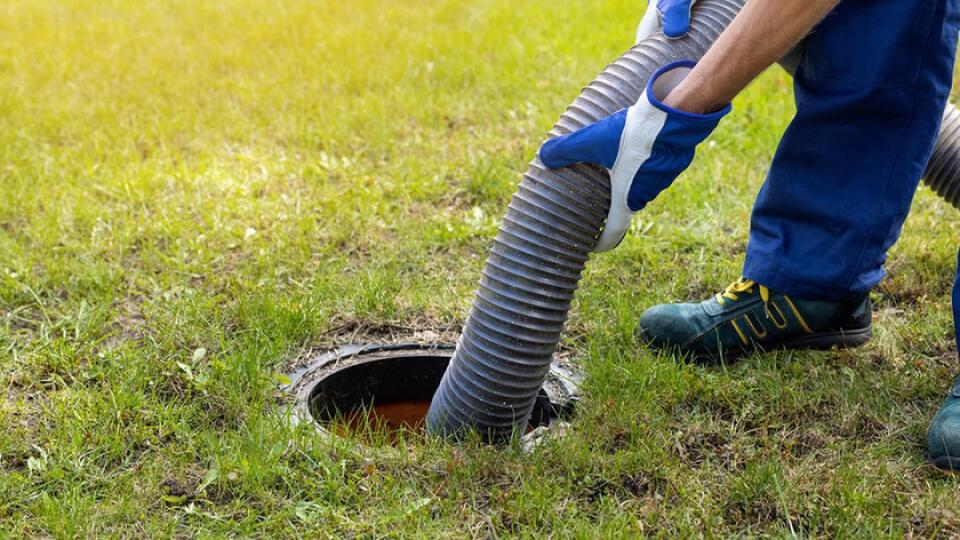Understanding the purpose and functioning of septic systems is crucial for homeowners relying on these wastewater disposal systems. Septic systems, consisting of tanks, drain fields, and distribution boxes, efficiently treat and disperse household wastewater.
The Consequences of Neglected Maintenance
Neglected maintenance can cause severe consequences, including environmental pollution and health risks. A malfunctioning septic system can contaminate water sources, harm aquatic life, and even lead to legal and financial troubles for homeowners.
Regular Pumping: Ensuring Optimal Performance
Routine septic tank pumping and inspection is essential to maintain optimal system performance. Depending on household size and tank capacity, experts recommend scheduling pumping every few years to prevent solids from clogging the system.
Managing Household Water Usage
Efficiently managing water usage can reduce strain on septic systems. Techniques like installing low-flow fixtures, spacing out laundry loads, and limiting the use of water-intensive appliances can significantly extend the lifespan of the system.
Maintaining a Healthy Bacterial Ecosystem
Beneficial bacteria play a vital role in breaking down organic matter in septic systems. To preserve this crucial ecosystem, homeowners should choose septic-safe cleaning products and avoid excessive use of antibacterial agents that harm the bacterial balance.
Monitoring and Addressing Warning Signs
Being aware of warning signs such as slow drains, foul odors, and soggy areas near the drain field can help detect septic system issues early. Promptly addressing these signs by consulting professionals can prevent further damage and contamination.
Proper Waste Disposal: Dos and Don'ts
Following septic-safe waste disposal practices is crucial. Homeowners should never flush non-biodegradable materials, chemicals, or excessive amounts of grease down the drain, as they can disrupt the system's functioning and lead to costly repairs.
Protecting the Drain Field
Taking precautions to safeguard the drain field is essential. Avoiding heavy machinery or vehicle traffic over the drain field, maintaining appropriate landscaping distances, and preventing root intrusion can help preserve its absorption capabilities.
Professional Inspections: An Essential Investment
Regular inspections by certified septic system inspectors are an investment in the system's longevity and performance. These inspections can uncover potential issues early, saving homeowners from more extensive repairs and expensive system replacements.
Repairing and Upgrading the System
When faced with septic system repairs, homeowners should consult professionals to ensure proper and lasting solutions. In some cases, system upgrades or expansion may be necessary to accommodate changes in household size or water usage patterns.
The Role of Local Regulations and Permits
Navigating local codes and regulations is crucial when it comes to septic systems. Homeowners must be aware of permit requirements for repairs, maintenance, or new installations and adhere to all regulations to avoid fines or consequences.
Public Health and Environmental Impacts
The connection between septic system maintenance and water quality cannot be overstated. Regular maintenance protects groundwater sources, nearby water bodies, and public health from harmful contaminants.
Cost Considerations: Saving Money in the Long Run
Although regular maintenance incurs costs, it is a prudent long-term financial decision. By preventing major system failures and prolonging the system's lifespan, homeowners can save significantly compared to the expenses associated with system replacement.
Educating and Involving Household Members
Spreading awareness and involving all household members in septic system care fosters a sense of responsibility and shared ownership. Educating family members about proper disposal practices and water usage can significantly contribute to the system's health.
Seasonal Maintenance: Special Considerations
Seasonal variations require adjustments in septic system maintenance practices. Homeowners should prepare their systems for extreme weather conditions, implement appropriate maintenance steps, and be aware of potential risks during different seasons.
DIY Maintenance: What You Can Do
Some septic system maintenance tasks can be performed by homeowners themselves. Regularly monitoring water usage, inspecting the drain field for signs of issues, and promptly addressing minor maintenance tasks can contribute to the overall system health.
Common Myths and Misconceptions
Debunking common misconceptions surrounding septic system care is essential. Contrary to popular belief, additives and treatments are often unnecessary, and alternative systems may not always be suitable for every household's needs.
Resources for Additional Information
For homeowners seeking further guidance on septic system maintenance, various resources are available. Local government websites, academic institutions, and professional organizations provide valuable information to help homeowners make informed decisions.
Case Studies: Lessons from Real Experiences
Learning from real-life experiences can provide valuable insights into septic system maintenance. Sharing success stories and cautionary tales highlights the importance of regular maintenance and the consequences of neglecting septic systems.
Future Innovations in Septic System Technology
Exciting innovations in septic system technology hold promise for improved performance, eco-friendliness, and user convenience. Advancements in areas such as real-time monitoring, advanced treatment processes, and smart septic systems may shape the future of septic system maintenance. Reach out to a TrustDALE certified professional for all your septic tank needs and don't forget you're always protected by The TrustDALE $10,000 Make It Right Guarantee™.

